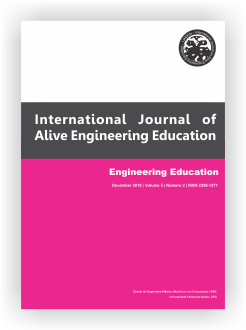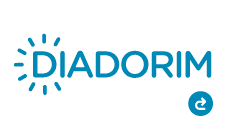Flipping the classroom: applying the circuit in Foundation Design
DOI:
https://doi.org/10.5216/ijaeedu.v5i2.54735Palavras-chave:
Engineering Education, Alive Engineering Education, IJAEEdu, ICAEEduResumo
The assessment of the student's academic results is one of the most challenging tasks in education because it may be subjective, lack clarity and goals. In addition, many professors and institutions have a deficient comprehension of the assessments' purpose and have used the students' grades as a means to determine the reach of the educational objectives. Trying to address that question, the Circuit is an alternative form of assessment based on the interaction and cooperation between students that aims to verify the results of the learning process through ludic activities. This paper presents the results of applying the Circuit in Foundation Design, an undergraduate course of the 5th-year of Civil Engineering at the Universidade Estadual de Santa Cruz - UESC, in Ilhéus, Brazil, in 2017. The professor decided to use the Circuit in this course as an attempt to enable the students to interact and share what they have learned with their classmates. By doing so, the professor considered the concept of the Zone of Proximal Development, from Vygotsky, assessing the students’ ability to deal with problems with the help of their peers and learn with them. The method, although containing many rules, was easy to apply. The students, divided into groups of three, were expected to create two reports based on data for one Standard Penetration Test – SPT - and one Cone Penetration Test – CPT. Each member of the group played a different role on the activity: the "engineer" produced the report; the "technician" completed the missing data of the tests; the "manager" corrected the final reports. After completing the activity, each student gave feedback on its negative and positive aspects and this information was used to compose the results. From the results, the method showed to be effective because more than half the students pointed out that it developed their sense of responsibility and was innovative. Conversely, it may have failed with respect to the distribution of time, what may have affected the results of the groups. Therefore, the method proved to be promising, but it still demands some improvements for subsequent applications.
Referências
PACHECO, J. A.; ZABALZA, M. A. (Org.) – A Avaliação dos Alunos dos Ensinos Básico e Secundário. In: Colóquio Sobre Questões Curriculares, 1, 1995, Braga. Proceedings.... Braga: Instituto de Educação e Psicologia da Universidade do Minho, 1995. p. 39-49.
FERNANDES, C. O.; FREITAS, L. C. Indagações Sobre Currículo: Currículo e Avaliação. Brasília: Ministério da Educação, 2007.
PACHECO, J. Avaliação da Aprendizagem. In: Leandro Almeida e José Tavares (Org.). Conhecer, aprender e avaliar. Porto: Porto Editora, 1998. pp. 111-132.
TYLER, R. W. Princípios Básicos de Currículo e Ensino (Trad.). Porto Alegre: Editora Globo, 1981.
RIBEIRO, L. R. C.; ESCRIVÃO FILHO, E. Um Sistema de Avaliação no Ensino de Engenharia: A Visão dos Alunos em uma Experiência com o PBL. In: CONGRESSO BRASILEIRO DE EDUCAÇÃO EM ENGENHARIA, 35., 2007, Curitiba. Procedings... Curitiba: UFPR, 2007. Available in: < http://www.abenge.org.br/cobenge/interna.php?ss=12&ctd=78>. Acessed on: 14 mai. 2018.
SACRISTÁN, J. G., GÓMEZ, A. P. (Ed.). La enseñanza: su teoría y su práctica. Ediciones Akal: Madrid, 1989.
DARSIE, M. M. P. Avaliação e Aprendizagem. Cadernos de pesquisa, n. 99, p. 47-59, 2013.
LODER, L. L. et al. Intervenções Pedagógicas Bem-Sucedidas em Cursos de Engenharia. In: Oliveira, V. F. et al. (Org.). Desafios da Educação em Engenharia: Formação em engenharia, Internacionalização, Experiências Metodológicas e Proposições. Brasília: ABENGE, 2013. p. 164-231.
HOFFMANN, J. Experiências em Avaliação Mediadora na Universidade a Partir do PAAP. In: MORAES, V. R. P. (Org.). Melhoria do Ensino e Capacitação Docente: Programa de Atividades de Aperfeiçoamento Pedagógico. Porto Alegre: UFRGS, 1996.
COLL, C. Un marco de Referencia Psicológica para la Educación Constructivista del Aprendizaje y de la Enseñanza. UPN. In: Corrientes pedagógicas contemporáneas.(Antología Básica), SEP-UPN. México, p. 28-44, 1994.
TORRES, P. L.; IRALA, E. AF. Aprendizagem Colaborativa: Teoria e Prática. Complexidade: Redes e Conexões na Produção do Conhecimento. Curitiba: SENAR-PR, 2014.
VYGOTSKY, L. S. Mind in Society: The Development of Higher Psychological Processes. Harvard University press: Cambridge, 1980.
Downloads
Publicado
Edição
Seção
Licença
Ao submeter eletronicamente um artigo na Revista Eletrônica Engenharia Viva, o responsável pela submissão:
a) Declara que o documento em questão é um trabalho original, e que detém prerrogativa de conceder os direitos contidos nesta licença. Declara também que a entrega do documento não infringe, tanto quanto lhe é possível saber, os direitos de qualquer outra pessoa ou entidade.
b) Se o documento em questão contém material do qual não detém os direitos autorais, declara ter obtido autorização do detentor dos direitos autorais para conceder à Universidade Federal de Goiás os direitos requeridos por esta licença, e que esse material cujos direitos são de terceiros está claramente identificado e reconhecido no texto ou conteúdo do documento em questão.
c) Declara ainda que qualquer pessoa nomeada como autor ou co-autor do documento tem consciência do fato e concorda em ser assim nomeado.
Termo de Autorização
Na qualidade de responsável pela submissão do documento, autorizo a Escola de Engenharia Elétrica, Mecânica e de Computação da Universidade Federal de Goiás (EMC/UFG) a disponibilizar a obra, gratuitamente, por meio do Sistema Eletrônico de Editoração de Revistas da UFG (SEER/UFG) ou na forma impressa, sem ressarcimento dos direitos autorais, de acordo com a Lei nº 9610/98. Fica permitido, a leitura, a impressão e/ou download, a título de divulgação da produção científica brasileira. Qualquer uso da obra que não o autorizado sob esta licença ou pela legislação autoral é proibido.



